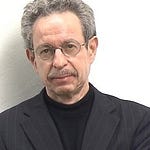Chapters:
0:00 The story behind Tchaikovsky’s violin concerto: fearing his homosexuality
10:30 Do we let artists off the hook?
17:55 Are there Tchaikovskys around today?
27:45 Classical music was written by people like us - it’s for everyone
33:30 How does great music stop us in our tracks?
Welcome to our first episode of the Five O’Clock Podcast. I’m your host, Theral Timpson, and I'm delighted to share this journey with you. Music has the ability to stop us in our tracks, whatever we might be doing. A while ago, I was driving down the freeway in my car, and a song came over the radio that so moved me, I had to pull over. It was Tchaikovsy’s violin concerto. The piece filled me with such joy that I was overcome and found myself contemplating my entire life. How does music do this? Was Tchaikovsky just an expert composer sitting at his piano every morning moving notes around as he sipped his morning tea? Well, it turns out, no. There was a story behind the piece that was at the heart of Tchaikovsky’s personal life.
When it comes to back stories on classical music, there is no one better to tell them than Robert Greenberg. He’s a composer himself, a pianist, a professor, and a musicologist. He can talk about music and musicians like no one I’ve ever heard. I discovered Robert over twenty years ago in the audiobook section of the Los Angeles Public Library where I found one of his Great Courses series on Beethoven piano sonatas. When I moved to the San Francisco Bay Area, I had the chance to hear him live on numerous occasions giving the introduction to concerts such as complete Schubert string quartet cycles. I am thrilled to have him on our first program.
Back to Tchaikovsky. What led to such an outpouring of joy and love in the violin concerto? It was written after he fled his marriage of three weeks. I give the popular story. Robert has a seedier version.
Tchaikovsky was always living on the edge—this gave him material. But music also gave him an escape. Are there Tchaikovskys around today? Do we give artists a pass for all their drama because they create such beauty? And, finally, how does music move us so profoundly?
Robert says we are hard-wired for it. It can change our heartbeat and intensify the biological patterns at our core. Yes, all this, but after learning of Tchaikovsky’s personal story, is there more?
A link to Robert’s fantastic blog












